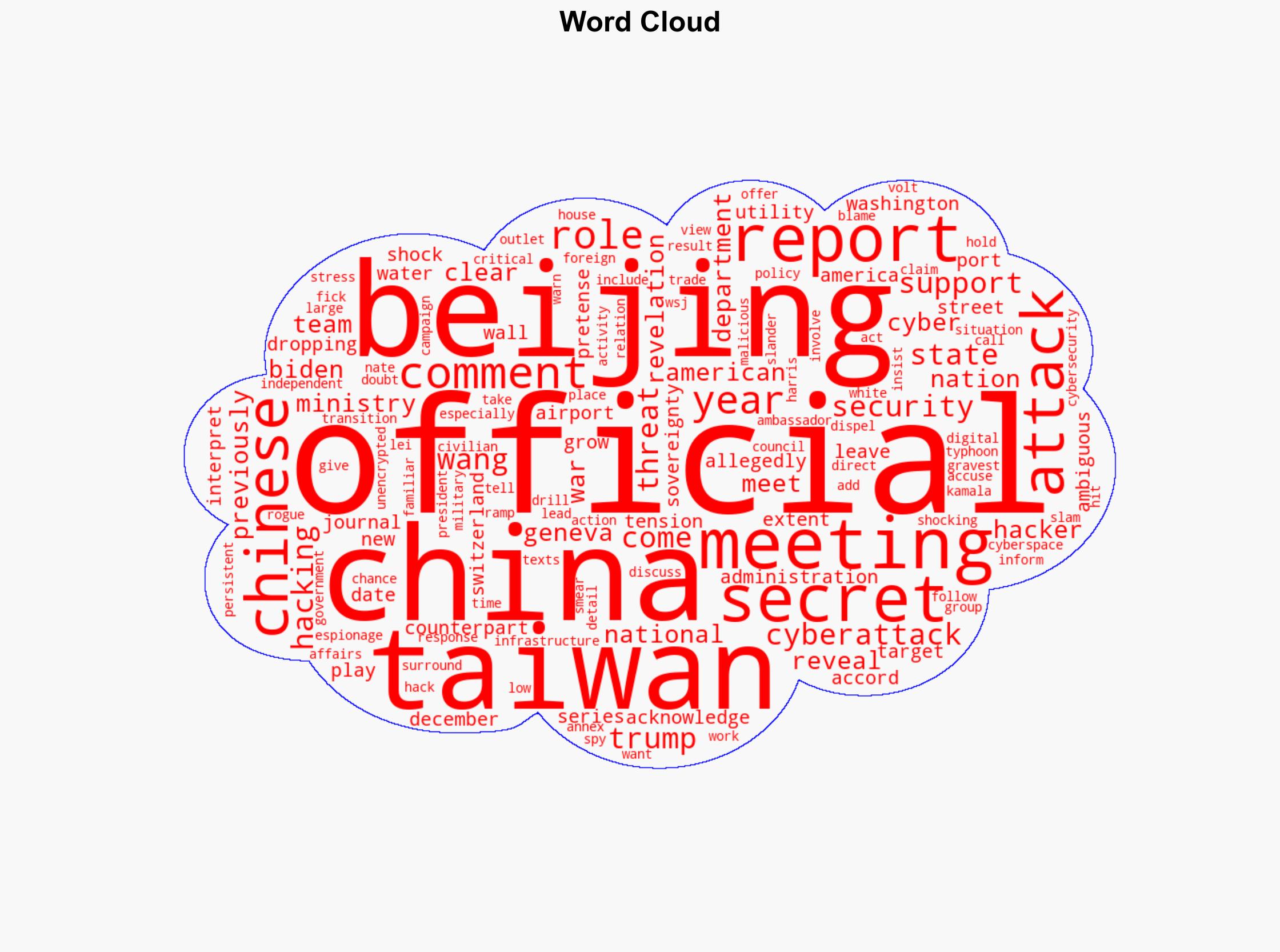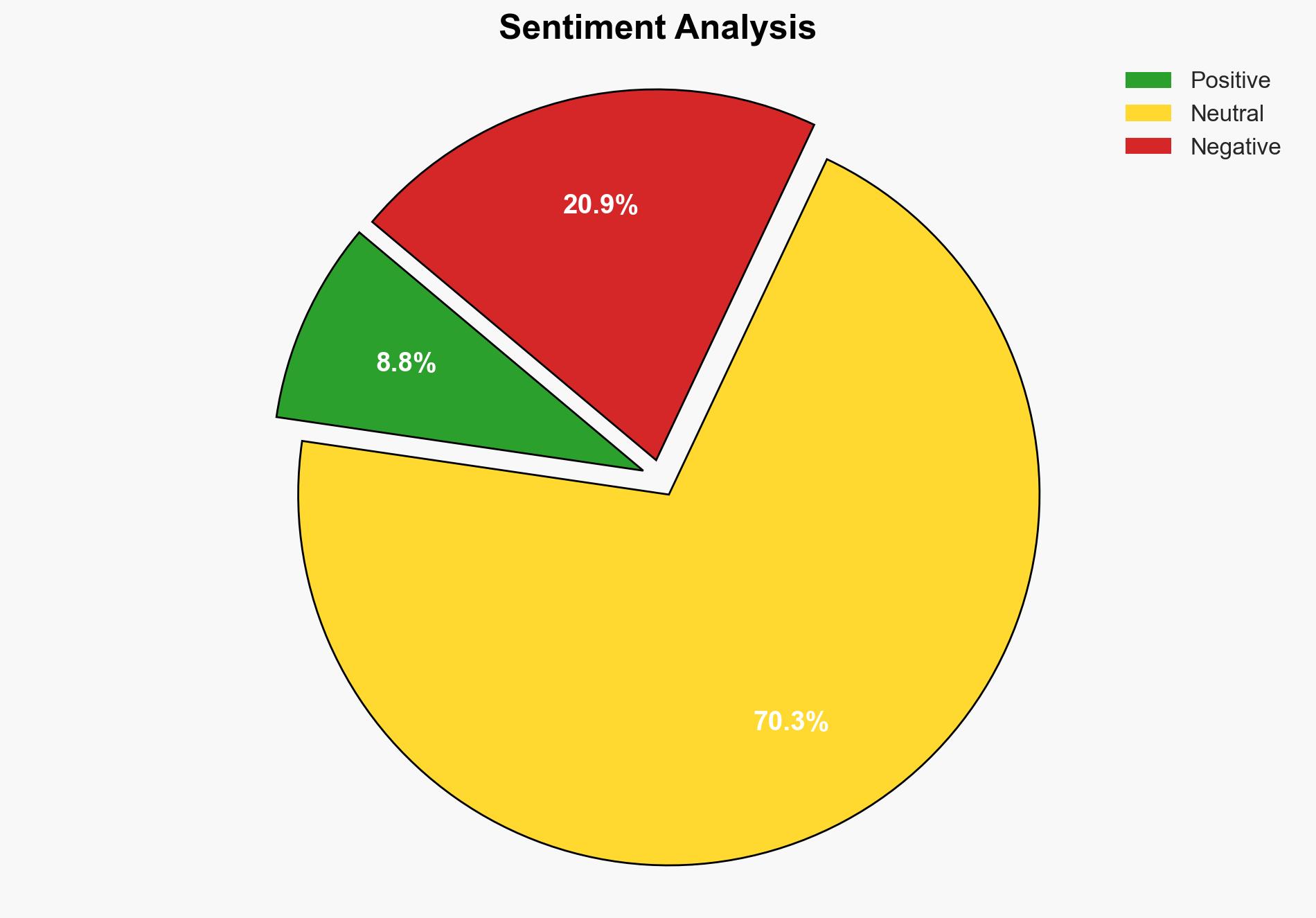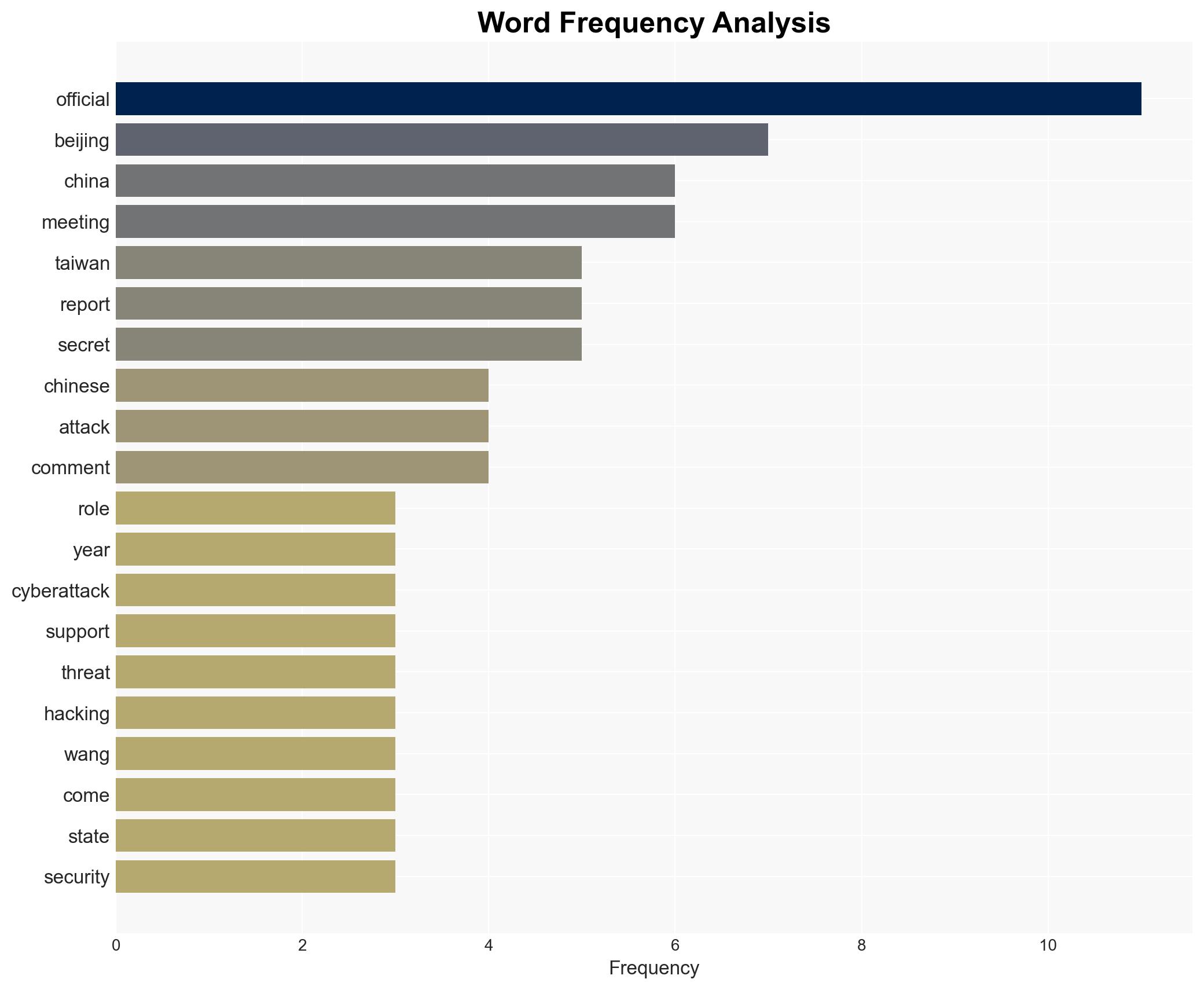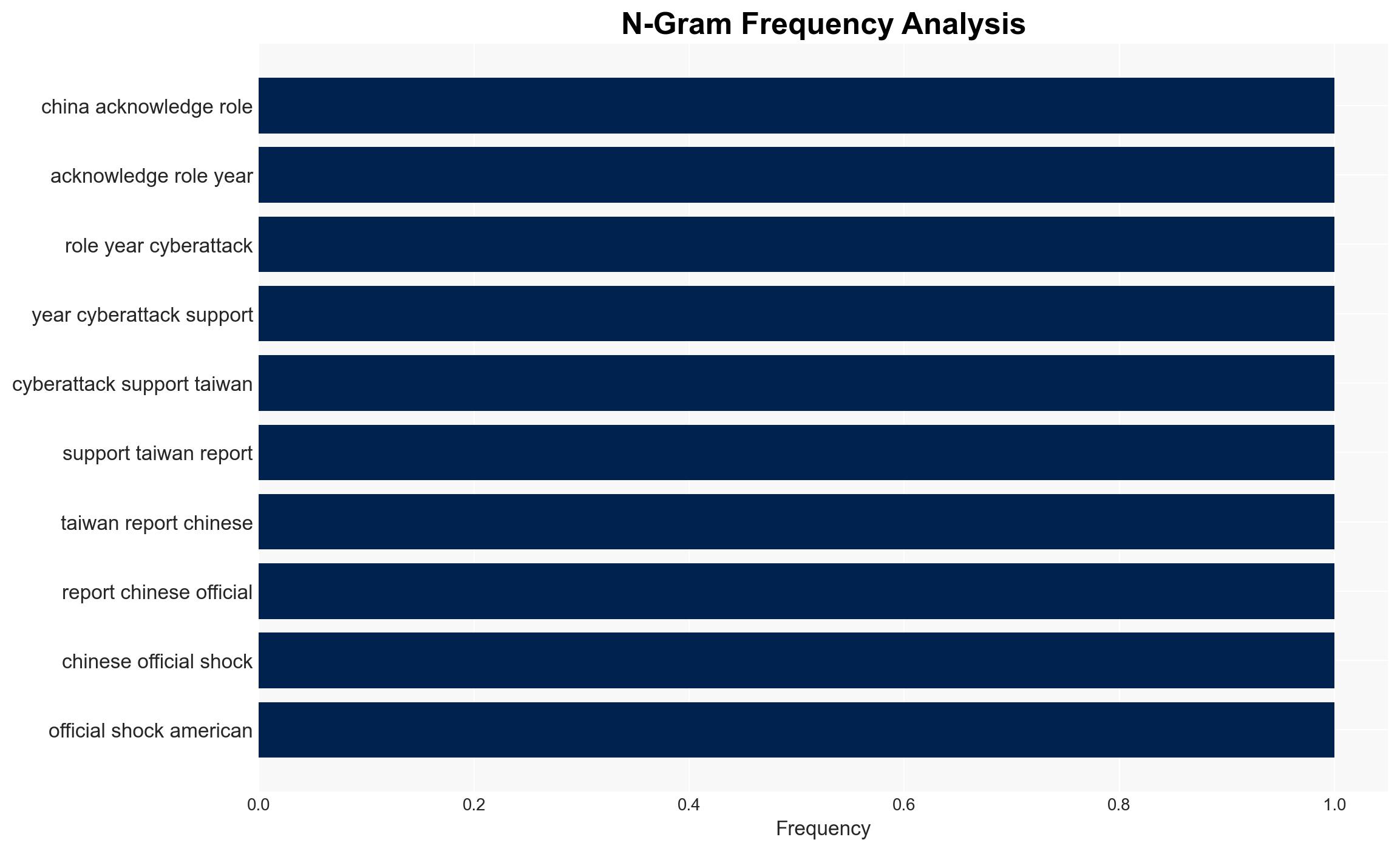China acknowledges its role in years of cyberattacks against US over support of Taiwan report – New York Post
Published on: 2025-04-10
Intelligence Report: China acknowledges its role in years of cyberattacks against US over support of Taiwan report – New York Post
1. BLUF (Bottom Line Up Front)
China has acknowledged its involvement in cyberattacks against the United States, linked to US support for Taiwan. This revelation, made during a secret meeting in Geneva, underscores the geopolitical tensions between the two nations. The cyberattacks targeted critical US infrastructure, posing significant national security threats. Immediate strategic actions are recommended to address these vulnerabilities and mitigate future risks.
2. Detailed Analysis
The following structured analytic techniques have been applied for this analysis:
General Analysis
The secret meeting in Geneva revealed China’s direct involvement in cyberattacks against US infrastructure, a move interpreted as a response to US support for Taiwan. The acknowledgment marks a shift from China’s previous stance of attributing such activities to rogue hackers. The meeting involved high-level officials, including Nate Fick and Wang Lei, highlighting the seriousness of the issue. The cyberattacks have targeted US ports, water utilities, and airports, indicating a strategic focus on critical infrastructure. This development coincides with heightened military activities around Taiwan and deteriorating US-China relations.
3. Implications and Strategic Risks
The implications of China’s acknowledgment are profound, affecting national security, regional stability, and economic interests. The cyberattacks represent a direct threat to US infrastructure, potentially disrupting essential services. Regionally, the situation exacerbates tensions over Taiwan, increasing the risk of military conflict. Economically, the attacks could undermine confidence in US cybersecurity capabilities, affecting trade and investment.
4. Recommendations and Outlook
Recommendations:
- Enhance cybersecurity measures across critical infrastructure sectors to prevent future attacks.
- Engage in diplomatic efforts to de-escalate tensions with China, focusing on dialogue and conflict resolution.
- Implement regulatory changes to strengthen national cybersecurity policies and frameworks.
- Invest in technological advancements to detect and respond to cyber threats more effectively.
Outlook:
Best-case scenario: Diplomatic efforts lead to a reduction in cyberattacks and improved US-China relations.
Worst-case scenario: Escalation of cyberattacks results in significant disruptions to US infrastructure and heightened military tensions over Taiwan.
Most likely scenario: Continued cyberattacks with periodic diplomatic engagements, maintaining a status quo of strained relations.
5. Key Individuals and Entities
The report mentions significant individuals and organizations involved in the events:
- Nate Fick
- Wang Lei
- Chinese Ministry of Foreign Affairs
- Chinese Ministry of State Security




